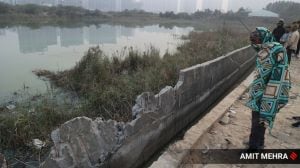Teaching tolerance, learning tolerance
Education has been termed as the Necessary Utopia. Every sector of human activity looks towards education to clear the hindrances and bottle...

Education has been termed as the Necessary Utopia. Every sector of human activity looks towards education to clear the hindrances and bottlenecks which creep in at practically each and every stage of human development due to human infallibility.
In a world besieged by all sorts of differences and violent conflicts, achieving social cohesion and imbibing the spirit of 8216;learning to live together8217; becomes the paramount challenge. The first step is to inculcate, nurture and develop the elusive value and universally felt need for the attitude of 8216;tolerance8217;. Education, once again, is perceived as the most effective means of preventing intolerance.
The 50th anniversary of both the UNESCO and the UN in 1995 was declared the International Year of Tolerance. The member-states of the UNESCO 8216;Proclaimed and Signed8217; the 8216;Declaration of Principles on Tolerance8217; on November 16 that year which recognised that the first step identified in tolerance education was 8216;to teach people what their shared rights and freedoms are, so that they may be respected, and to promote the will to protect those of others8217;. Tolerance education can counter influences that lead to 8216;fear and exclusion of others8217; and it should help young persons to develop capabilities and competence for 8216;independent judgment, critical thinking and ethical reasoning8217;. Accordingly, those entrusted with the responsibility of perceiving and implementing responsive educational changes need to give adequate emphasis in policies and programmes to ensure the 8216;development of understanding, solidarity and tolerance amongst individuals as well as among ethnic, social, cultural, religious and linguistic groups8217; and, in the present context, among nations.
The erosion of values is a global phenomenon that is of concern to every one. Tolerance, too, is an endangered virtue. Intolerance is a major threat to the initiatives towards peace, progress and prosperity. It destroys developmental efforts. Its presence is evident in religious persecution. The Report of the Commission appointed by UNESCO to visualise the shape of education in 21st century, identifies learning to live together and achieve 8216;social cohesion8217; as the most outstanding objectives of education for the present century. Very rightly, it presents a great challenge before education systems, world-wide.
The battle against intolerance is to be fought throughout one8217;s life. The preparation for this must begin in the classrooms. Group awareness and its significance in life could be imparted in schools by activities and participation in well-designed programmes. Real life situations like floods, drought and disasters often present an opportunity for the young to work together and express a common humanity. These can, in turn, change attitudes and usher in the spirit of tolerance at a mass level. Education, then, is the key.
- 01
- 02
- 03
- 04
- 05































